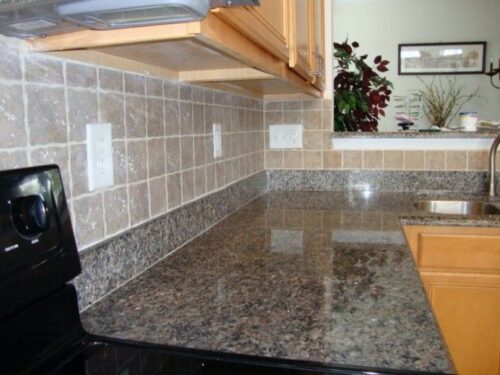Installing new countertops in your kitchen is an exciting way to enhance the look and functionality of your space. Whether you’re renovating your entire kitchen or just updating the countertops, there are several important factors to consider before beginning the installation process. This comprehensive guide will walk you through the key things you should know to ensure a smooth and successful countertop installation.
Understanding Your Kitchen Layout
Assess Your Space
Before choosing your countertop installation, it’s crucial to thoroughly understand your kitchen’s layout. Measure the dimensions of your current countertops and note the location of your sink, appliances, and any built-in features. Accurate measurements will help ensure that your new countertops fit perfectly and meet your functional needs.
Consider the Workflow
Think about how you use your kitchen. The layout of your countertops should complement your cooking and cleaning habits. The placement of the sink, stove, and refrigerator should create an efficient workflow. This is often referred to as the kitchen “work triangle,” which aims to keep the path between these three areas clear and easily accessible.
Choosing the Right Material
Compare Different Materials
Countertops come in a variety of materials, each with its own advantages and disadvantages. Here are a few popular choices:
- Granite: Known for its durability and natural look. It resists heat well but requires sealing to prevent stains.
- Quartz: Offers a wide range of colors and patterns. It’s non-porous, which makes it easy to clean and maintain.
- Laminate: A budget-friendly option available in many designs. However, it’s less durable than stone and can be prone to scratches and burns.
- Marble: Adds elegance and beauty but is more porous and susceptible to staining than other materials.
- Butcher block: Provides a warm, natural look and can be sanded and refinished. It requires regular maintenance to resist bacteria and damage.
Consider Your Lifestyle
Your lifestyle should influence the type of material you choose. If you have a busy kitchen with lots of meal preparation, you might prefer a durable and low-maintenance material like quartz. If style is your main concern, a beautiful but higher-maintenance option like marble might be more suitable.
Setting a Budget
Determine Your Budget
Countertops can vary widely in price, depending on the material and complexity of the installation. Set a realistic budget early in the planning process. Include not only the cost of the materials but also installation fees, which can vary based on the material’s weight and installation difficulty.
Plan for Unexpected Costs
It’s wise to allocate an extra 10-20% of your budget for unexpected expenses. These might include complex installations, necessary repairs to underlying cabinets, or last-minute changes in material choice.
Preparing for Installation
Choose a Reputable Installer
Finding the right contractor or installation team is crucial. Look for professionals with experience in installing your chosen material. Check their references and reviews to ensure they provide quality workmanship.
Schedule the Installation
Coordinate with your installer to choose a suitable time for the installation. Consider factors such as delivery times for your chosen material and your own availability. Some materials, like granite and quartz, might need time to be custom-cut and polished.
Prepare Your Kitchen
Before the installation team arrives, clear your countertops and empty the lower cabinets, especially if the installation process could create dust or debris. This will make the installation process smoother and help protect your belongings.
What to Expect During Installation
Installation Day
On installation day, ensure that there is clear access to your kitchen. The installation team will need enough space to work efficiently. The process might be noisy and create some mess, but a professional team will minimize disruption.
Fitting and Adjustments
The installers will first ensure that the countertops fit perfectly. This might involve final measurements and some on-site adjustments. They’ll also install undermount sinks or faucets if included in your plan.
Finishing Touches
After the countertops are in place, the installers will apply sealants if necessary, particularly for materials like granite and marble that require them to resist stains and water damage.
Post-Installation Care

Maintenance Tips
After installation, learn how to care for your new countertops. Each material has specific care requirements, from regular sealing to avoiding certain cleaning chemicals that could damage the surface.
Regular Cleaning
Regular cleaning will keep your countertops looking their best. Use cleaners suitable for your countertop material, and immediately clean up spills to prevent stains, especially on porous materials like marble.
Conclusion
Installing new countertops is a significant investment that can transform your kitchen. By understanding your space, choosing the right materials, setting a realistic budget, and preparing for the installation, you can ensure that the process goes smoothly. With the right planning and a professional installation team, you’ll enjoy your new kitchen countertops for years to come.
Note:-For more articles visit on articlestores.
